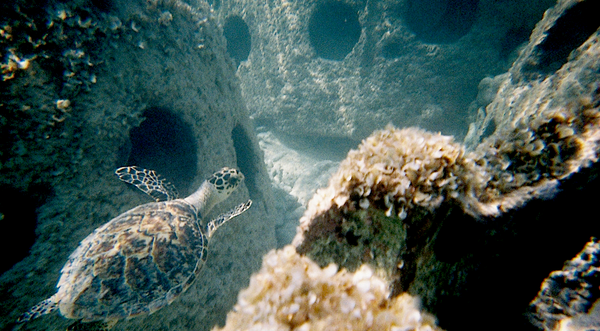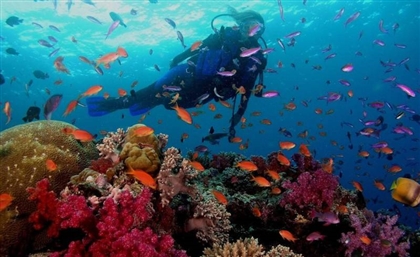Could Suicide Tourism Save Egypt's Reefs?
What if we told you that euthanasia could help revive Egypt's endangered Red Sea Coral Reef? It sounds a little far-fetched, but here's how it could work...

Two major problems that Egypt faces is the erosion of its coral reefs and the catastrophic drop in tourism rates. One could argue that less tourist is better for the health of coral reefs. Howeverm what if we were to tell you that there was a way to not only keep tourist here forever, but also use them to create eternal reefs?
Confused? So were we, until we learned that eternal reefs are coral reefs using the cremated remains of the dead. Instead of family visiting the deceased tombstone, they could get some diving gear and visit a coral reef made of a loved one's remains. The idea of eternal reefs is essentially the brainchild of two college room-mates who loved to go diving in Florida. Over the years they witnessed their beloved reef degrading and deteriorating.
Looking to save their marine environment, the pair created a reef ball, an artificial habitat that replicates the conditions for marine life and microorganisms. The reef ball is composed of an environmentally-friendly concrete formula that would be attractive to the microorganisms to make the new reefs, and could brave the dynamic marine conditions. The reef ball was a success but evolved morbidly when Carleton Glen Palmer, the father-in-law of co-creator Don Brawley, decided he wanted his cremated remains incorporated into a reef ball.

According to Eternal Reefs, Carleton said: “I can think of nothing better than having all that action going on around me all the time after I am gone. Just make sure that the location has lots of red snapper and grouper.” Shortly after Carleton made this request, he passed away. Since then the idea has grown in popularity, as people like the uniqueness having friends and family dive to visit their reef, providing life for other organisms from death.

So, the real question is why haven't we heard of eternal reefs in Egypt? The simple answer is that a majority of Egyptians are Muslim, and in Islam cremating is considered a sin. However, if we are serious about helping restore the damage done to our world-renowned coral reefs, then perhaps we should explore Switzerland's strategy of attracting suicide tourism.
In Switzerland, more than 600 people have travelled there to die between 2008-2012. Since then, the numbers have doubled as many terminally ill patient who can no longer deal with the constant suffering flock to Switzerland, where assisted suicide laws aren't clearly defined. Dr. Saskia Gauthier of the Institute of Legal Medicine at the University of Zurich reports in the Journal of Medical Ethics, “That while assisted suicide is strictly restricted in many countries, it is not clearly regulated by law in Switzerland. This imbalance leads to an influx of people —‘suicide tourists’—coming to Switzerland.”
Obviously euthanasia is haram in Islam. However, if we were to rely on kafer tourists, and help relinquish them of their pain, then not only will Egypt be able to protect one of its natural treasures, the Red Sea Coral Reef, but would also be able to bring new life to its tourism industry, albeit briefly.
- Previous Article Top 10 Awkward Tamer Hosny Dance Moves
- Next Article Nomades Land
























